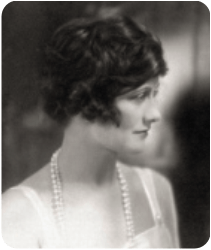Coco ChanelFemale and Imposing Double Room Located on the first floor. King Size bed. This room is elegantly decorated with period furniture, a double bed and features a seating area and free Wi-Fi.
Free Wi-Fi
For your moments of sharing photos.
Airport Transfer
Do not worry about arriving at our Riad:
- Transfer / way (1-3 p.): €25
- Transfer / way (4-6 p.): €35
- Transfer / way (7-10 p.): €55
High Quality Amenities
Les Sens de Marrakech 100% natural ingredients.
Air conditioner
Cold or hot.
Bar
Take something and enjoy.
Public Parking
200 meters in the Riad Laarouss Square.
Splash Pool
Relax after a long day of sightseeing.
Room Prices
Riad Rental
Rent the complete Riad, and enjoy privacy and exclusivity. Prices include breakfast and VAT. Does not include Local Taxes € 2.50 per person and night.
from € 700 / night TA: € 800 / night
Normal Rate
UP TO 15% DISCOUNT BOOKING ONLINE.
Prices include breakfast and VAT. Does not include Local Taxes € 2.50 per person and night.
from € 120 / night
High season
Christmas
Holy Week
Long weekends / Holiday weekends
from € 140 / night
Extras
Cava
20€
Flowers
18€
Lunch
25€/per person
Dinner
30€/per person
Gabrielle Bonheur "Coco" Chanel (Saumur, France, August 19, 1883 - Paris, January 10, 1971) was a revolutionary fashion designer and creator of French perfumes. Very different situations made his life marked by poverty, abandonment, love, genius and fame. Phrases like "Everything that is fashionable goes out of style", or "If you wear a vulgar suit everyone will look at the suit, while if you wear an elegant suit everyone will look at you," they say enough of Gabrielle Bonheur Chanel, born poor in Saumur , in the French Brittany, and reception in the orphanage of his aunts in Aubazine, after the death of his mother by tuberculosis.
Aunts Adrienne and Louise soon taught her to mend but she learned to sew, and so the vocation, ambition (she didn't want to be a dressmaker but "a great dressmaker") and the nickname were forged: they were the first to call her "Coco" . Over time, that ambition, which placed her on the highest podium in the world seam, was not enough. He continued to grow in his tormented and megalomaniac spirit, too perhaps, for such a body so often. Neither the hats, nor the clothes, nor the perfumes, nor being a rich woman in full youth. She wanted to reach the very heart of power, and to know the power she needed men. First Étienne Balsan, a distinguished officer of the light cavalry; then Arthur Boy Chapel, a handsome English polo player, whom he fell in love with; later the Duke of Westminster, cousin of the Tsar; Igor Stravinsky; Dimitri of Russia; Hans Gunther von Dincklage, a handsome officer of the German Gestapo (she called him "Spatz", sparrow).
Her magnetism also surrounded her with important friends, especially great artists (Cocteau, Misia Sert, Balenciaga, Diaghilev ...) She also was, and to her talent, intuition and courage owes much of her freedom to today's women. Coco Chanel finished with the little shoes, the skirts that were dragging, the hats full of fruits and feathers, the frills, the curls and, above all ... The corsets! He undressed the woman from outskirts and put her in the office, in the university, on the tennis courts, enjoying the sea and the sun on the beaches. While the women of the nineteenth century disappeared on the way to the museums, the women of the twenties cut their hair and went out into the street with a simple straight skirt and a knitted sweater, or a shirt, and a blazer. It was still a few years before some, more voluptuous, dressed only with a few drops of their famous perfume.







